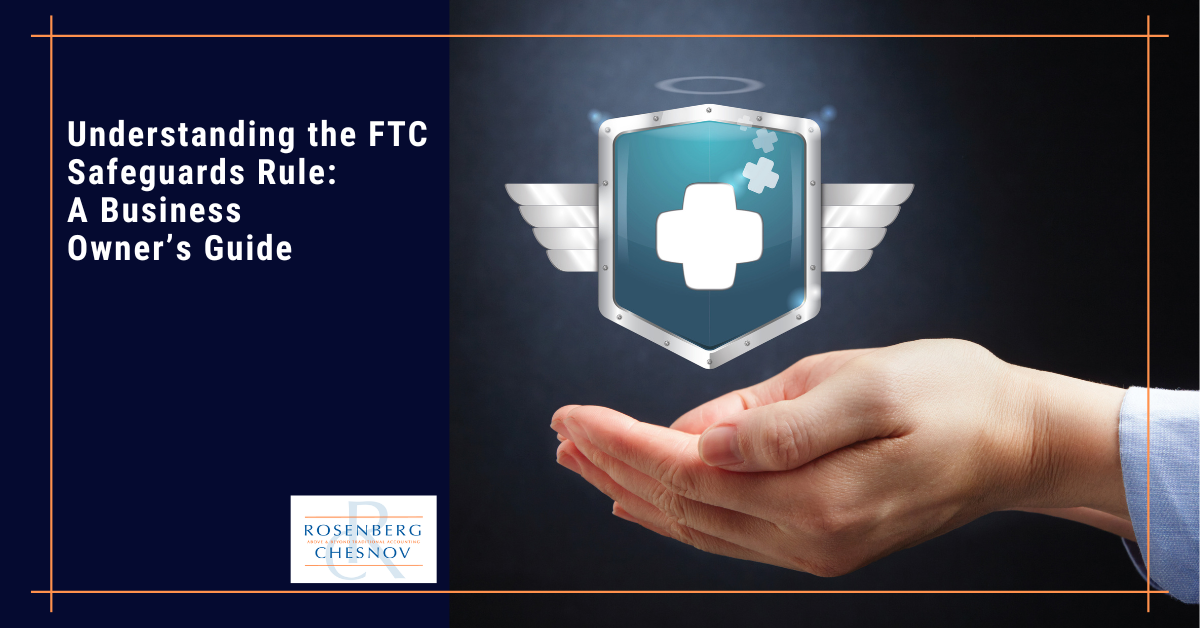

Understanding the FTC Safeguards Rule: A Business Owner’s Guide
Category: Accounting
When you incorporate your business, you must meet specific corporate responsibilities to stay in good standing as an entity. One of them is to hold regular meetings, documented with minutes.
Corporation meeting requirements are different depending on the type of corporation and the state in which you incorporated it; state law and the corporation’s own bylaws set the rules by which the corporation holds valid meetings, takes proper actions, and keeps appropriate records and documentation.
However, it is essential for any corporation or similar structure to have some type of meeting rules in place — and not just because of state laws.
Corporations often serve the purpose of protecting shareholders from liability. If the corporation does not follow formalities, the corporate veil can be easily “pierced” by a court, resulting in personal liability for the shareholders.
Furthermore, an organization risks its legal standing if it fails to hold corporate meetings documented by the corporation’s minutes. But corporations also have a fiduciary responsibility to establish and follow meeting rules.
They help ensure that your company is operating legally and responsibly. As a result, they protect your organization’s stakeholders and limit liability related to possible negligence by directors or officers.
To discover more about general meeting requirements for all corporations and corporations with a single shareholder, two shareholders, or three or more shareholders, continue reading.


Shareholder meetings are a regulatory requirement for both public and private companies. That means your corporation must prove that it has met the standard for holding documented corporate meetings at any point in its history.
Corporation law does vary by state, and different corporations have different bylaws and processes. Nevertheless, the general concepts of properly calling a meeting, giving adequate notice, and correctly recording corporate actions are often the same.
Use the following information as a basic guideline, not a guarantee of compliance with state law and your corporation’s bylaws.
If you are unsure of the meeting requirements for your corporation, the best thing to do is consult with your state government. They are the ultimate authority in such matters and will be able to provide the most up-to-date information.
That said, let’s take a high-level look at some general guidelines that are likely to apply in your case before diving down into greater specificity.
To remain in good standing as a corporation, you must meet the following standards:
Small to medium-sized corporations often have a board of directors composed of the corporation’s shareholders. A corporation must have both groups to operate legally; however, you may combine the annual meeting requirements for both groups into one session if the members of both groups are the same people in your corporation. You need to ensure that your meeting minutes reflect that the meeting was a joint assembly of the shareholders and the board of directors.
It may surprise you to learn that even if you are your company’s sole shareholder, director, and officer, the law still requires you to hold regular meetings. However, even as a one-person show, you are obligated to do things by the book. This can have advantages for you and your corporation, protecting you from personal liability and keeping your company in good standing.
Requirements for meeting minutes are relatively simple for one shareholder corporation. Use the general requirements as a guideline and also consider the following information.
Remember, even if it seems arbitrary for your single shareholder corporation, you must still adhere to meeting requirements to retain corporation status.
If there are two shareholders, both are on the board of directors, and you must designate one person as the secretary of the corporation. Use the general requirements as a guideline and also consider the following information.
There is a more significant potential for disagreements when there are more than two shareholders. You should ensure that your company adheres to corporate formalities so that one individual cannot later contend a meeting (and any decision made at that meeting) was invalid due to inadequate notice or non-attendance. Use the general requirements as a guideline and also consider the following information.
Adhering to corporate meeting requirements as defined by state law and your corporation’s bylaws is crucial to your business’s continued existence. Failure to do so could lead to severe consequences, such as dissolution or personal liability for individual shareholders.
So before you call your next meeting, make sure you’re following the proper procedures and meeting requirements.
If you are a client and would like to book a consultation, call us at +1 (212) 382-3939 or contact us here to set up a time.
If you aren’t a client, why not? We can take care of your accounting, bookkeeping, tax, and CFO needs so that you don’t have to worry about any of them. Interested? Contact us here to set up a no-obligation consultation.
Interested in receiving updates in your mailbox? Check out our newsletter, full of information you can use. It comes out once every two weeks, and you can register for it below.


Category: Accounting


Category: Management


Category: Management
Send us a message and we will contact you as soon as possible.
Jeff Coyle, CPA, Partner of Rosenberg Chesnov, has been with the firm since 2015. He joined the firm after 20 years of business and accounting experience where he learned the value of accurate reporting, using financial information as a basis for good business decisions and the importance of accounting for management.
He is a diligent financial professional, able to manage the details and turn them into relevant business leading information. He has a strong financial background in construction, technology, consulting services and risk management. He also knows what it takes to create organizations having built teams, grown companies and designed processes for financial analysis and reporting.
His business experience includes:
Creating and preparing financial reporting, budgeting and forecasting.
Planning and preparation of GAAP and other basis financial statements.
Providing insight on financial results and providing advice based on those results.
Jeff also has a long history of helping individuals manage their taxes and plan their finances including:
Income tax planning and strategy.
Filing quarterly and annual taxes.
Audit support.
General financial and planning advice.
Prior to joining the firm in 2015, Jeff was in the private sector where he held senior financial and management positions including Controller and Chief Financial Officer. He has experience across industries, including construction, technology and professional services which gives him a deep understanding of business.
Jeff graduated from Montclair State University, he is a CPA and member of the American Institute of Certified Public Accountants, New York State Society of Certified Public Accountants and New Jersey State Society of Public Accountants.
Jody H. Chesnov, CPA, Managing Partner of Rosenberg Chesnov, has been with the firm since 2004. After a career of public accounting and general management, Jody knows the value of good financials. Clarity, decision making, and strategy all start with the facts – Jody has been revealing the facts and turning them into good business results for more than three decades.
He takes a pragmatic approach to accounting, finance and business. His work has supported many companies on their path to growth, including helping them find investors, manage scaling and overcome hurdles. His experience and passion for business reach beyond accounting and he helps businesses focus on what the numbers mean organizationally, operationally and financially.
He has a particular expertise in early-stage growth companies. His strengths lie in cutting through the noise to come up with useful, out of the box, solutions that support clients in building their businesses and realizing their larger visions.
Prior to joining the firm in 2004, Jody was in the private sector where he held senior financial and management positions including General Manager, Chief Financial Officer and Controller. He has experience across industries, which gives him a deep understanding of business.
Jody graduated with a BBA in Accounting from Baruch College, he is a CPA and member of the American Institute of Certified Public Accountants and New York State Society of Certified Public Accountants.
In addition to delivering above and beyond accounting results, Jody is a member of the NYSCPA’s Emerging Tech Entrepreneurial Committee (ETEC), Private Equity and Venture Capital Committee and Family Office Committee.
He is an angel investor through the Westchester Angels, and has served as an advisor for many startup companies and as a mentor through the Founders Institute.